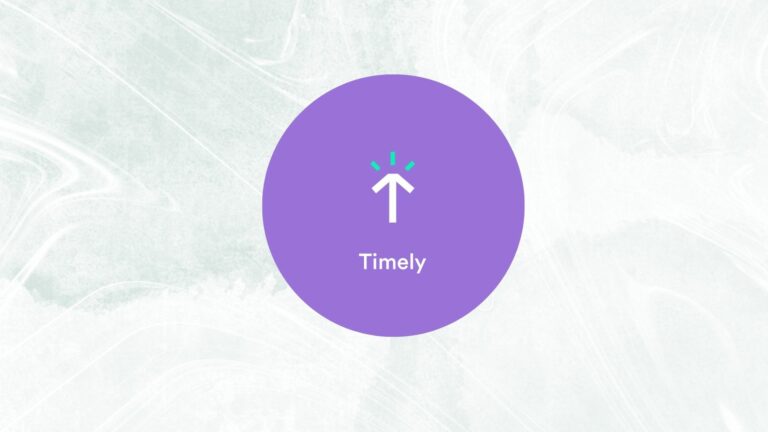The pressures of management are enough. Having to juggle multiple priorities while remaining calm under pressure is no easy feat. If you want to have more calm in your life, then you should learn to manage your time better.
It’s normal for managers to feel overloaded from time to time. If you know how to effectively manage your time, you’ll never have to worry about that sensation again. It helps you remain focused on your goals by reminding you of your obligations. It liberates you to realize your own potential.
Table of contents
Why develop time management skills?
Managers often take on more responsibilities than they can reasonably meet. When you have a lot on your plate, it can be tempting to say yes to everything in order to get things done.
Managers often do this despite already being overburdened with tasks, leading to feelings of futility. This unnecessary stress can have a negative impact on managers’ morale, which in turn can have a negative impact on the quality of their job and the morale of their team as a whole.
If you can master the art of time management, you can avoid all of this. A manager’s productivity can grow dramatically with the right strategies in place. Increased focus and enthusiasm for the task at hand, which are both facilitated by careful time management, may lead to a better output.
A well-organized manager inspires trust and pride in one’s own work and that of one’s team. They have built trust in their manager and know they can rely on him.
Knowing the benefits of these methods can encourage team members to incorporate them into their daily routines. A single change implemented by managers can have a profound impact on the entire organization. Everyone on the team can feel confident and focused on doing their best.
But what are time management skills?
It could surprise you to know how simple time management skills really are. So much so that it won’t be long before it becomes a daily ritual for you.
Before we begin, it is important to remember that every manager is different, and putting yourself at the center of your time management development is the most crucial step. Knowing that it’s not a one-size-fits-all situation but that you should approach time management with flexibility and patience
Give yourself time to experiment with various techniques, and remember that this is supposed to help, not hinder you. To get started on developing your time management skills, you have to start with the building blocks. Here are some examples of skills to help you begin:
1. Prioritization
Taking 30 minutes each day to accumulate all your tasks can be a great way to assess what things are most important, despite it potentially being overwhelming initially.
When you have written down these tasks, prioritize them by answering these questions:
- How long will it take you to complete the task?
- When is it due?
- What impact will completing this task have?
- How important is it to do today?
A simple traffic light system can be useful for giving your final response. If you color-code your priorities from least to most critical, you’ll have a clear picture of where to focus your energy.
When you apply the traffic light system to your other responses, you have the beginnings of a prioritization process. It’s far less of a hassle to keep track of what’s most pressing and what can wait.
You may, for instance, pencil in an hour to complete an orange assignment that isn’t due for a while. In this way, you can chip away at your to-do list little by little, prioritizing the most important items first.
If you take care of this first thing in the morning, you’ll be in a fantastic position to streamline your operations throughout the day. You’re already aware of today’s priorities. This ability will serve as the basis for your other time management abilities.
2. Delegation
When it comes to managing your time, remember this important point: you don’t have to do everything, and that’s totally fine! Your team is often eager to take on extra tasks or new responsibilities. Sometimes, certain tasks align better with their skillset, which ultimately improves the overall team’s efficiency.
Tasks can be quite stressful, especially if they require expertise that isn’t your strong suit or if you’re simply short on time. If you try to tackle these tasks yourself, you might not achieve the desired standard, and it could take you much longer than expected.
So, what’s the solution? Look at your team! Assigning a task to someone with more experience ensures it will be completed more effectively and to a higher standard. This approach not only gives you peace of mind but also frees up your time to focus on other tasks. Embrace the team spirit, and you’ll find that everyone benefits from playing to their strengths. Finally, If you’re looking for software for staffing agencies for hiring, you can try out Recruiting CRM.
3. Time Blocking
So, you have prioritized your tasks for the day and delegated others. Now, time blocking comes in.
Time blocking is when you organize your day based on tasks. After noting how long each job will take, slot a time block into your calendar. This is also a personal process: if you know you aren’t going to be able to do a 5-hour task all at once, break it down into hourly sections throughout the day.
There may be simpler and shorter tasks in the areas surrounding these sections. It can also be useful for organizing tasks that need to be done at certain times of the day.
This is the ideal time management technique for people who often lose motivation or become sidetracked. It keeps you on track and focused for a set period of time. Time blocking also prevents you from taking too long on a task by giving you a deadline.
4. Avoiding Distractions
Distractions are a natural part of work, and it’s almost impossible to completely avoid them. Even in a quiet room with just your computer, your mind can still wander.
But there’s a way to manage these distractions effectively – by using strategies that help you stay on track. One such technique is time blocking, which involves setting specific time limits for tasks. This creates a sense of urgency that can help you stay focused and avoid getting sidetracked.
Incorporating regular breaks within these time blocks is essential to prevent exhaustion and burnout, both of which can lead to more distractions. Take a 10-minute break to stretch your legs, grab a drink, or have a snack. When the break is over, return to your work refreshed and ready to tackle the next round.
By doing this consistently throughout the day, you’ll be better able to handle distractions that come your way during less critical periods. The beauty of this approach is that it’s adaptable to anyone’s preferences. If you prefer longer, more intense work sessions, take longer breaks in between. For those who like short bursts of work, shorter breaks will do the trick. You can also switch between tasks at each break if that’s what suits your style.
So, with the help of time blocking and mindful breaks, you’ll stay focused, boost productivity, and handle distractions like a pro—a technique that anyone can use and benefit from!
5. Finding your most productive hours
Discovering your most productive hours is a game-changer when it comes to dodging distractions and maximizing your efficiency. Knowing when you work best allows you to prioritize and schedule your calendar more effectively.
Three main factors influence your productivity: stress, energy, and pace.
Stress:
Address the task that’s causing you the most stress and distraction first. Tackling it early frees up mental space for other tasks and relieves the burden of procrastination.
Energy:
Your energy levels have a significant impact on your productivity. If you’re not a morning person and find it challenging to do your best work, start your day with easier tasks. Save your peak energy times for more demanding tasks. Remember to take breaks throughout the day to recharge and ensure you have the opportunity to produce your best work.
Pace:
Maintaining a good pace throughout the day is crucial for sustaining momentum. If you have a task that tends to drain your energy and make you feel sluggish, schedule it before a break so you can recuperate afterward. Conversely, group together tasks that you find easier and tackle them all at once. Time blocking works hand in hand with this approach, allowing you to structure your day efficiently.
By understanding and leveraging these factors, you’ll optimize your productivity and make the most of your productive hours.
6. Time Management Software
Time management is crucial for any team’s success, and if even one team member struggles with it, it can negatively impact the entire group’s progress. Delays and setbacks become common when time isn’t managed effectively.
That’s where Tackle’s Time Management Software comes to the rescue! It offers a variety of tools, including calendars, focus apps, task management, note-taking, and time tracking, catering to each team member’s unique needs and preferences.
As a manager, introducing Tackle’s Time Management Software to your team ensures everyone stays on track and manages their time efficiently. The user-friendly interface makes it easy for team members to adopt the software and integrate it seamlessly into their workflows.
The best part is that, as a manager, you can oversee the team’s time management practises effortlessly. With all the data in one centralized spot, you can track the progress of each team member without drowning in emails. By streamlining time management with Tackle’s software, you not only lighten your team’s workload but also make your own job more manageable.
So, with Tackle’s Time Management Software on board, your team will stay organized, productive, and focused, driving success and achieving goals together.
7. Time tracking
Time tracking software allows you and your team to have a clear understanding of how time is being spent. Not only does this help you identify where time is being inefficiently used, but also helps you estimate the time needed for each of your tasks based on previously completed ones.
This facilitates accurate planning by helping set realistic deadlines and distributing work across the team, aware of each member’s capacity. It ensures that your time blocks have the right amount of
time allocated, and it helps you find your most productive hours.
In essence, it goes hand in hand with all the other time management techniques mentioned above!
You have the skills, now how do you implement them?
As a manager, it’s essential to connect with your team and show them the incredible benefits of developing these skills. Talk about how it can reduce stress and boost productivity, both individually and as a team. When they see how it can make their work lives easier and more fulfilling, they’ll be more excited to give it a try.
Remember, Rome wasn’t built in a day, and neither is a new work routine. Give your team some space to adjust and adapt to the changes. It’s all about finding what works best for each person.
Leading by example is a powerful way to inspire your team. If you’re finding success with these time management techniques, share your passion for it! When they see your enthusiasm and positive results, they’ll be more motivated to jump on board.
So, let’s tackle time management together! Try out Tackle – it’s a fantastic tool that can help you and your team stay organized and focused. And guess what? You can sign up for free! So, why not give it a shot and see how it revolutionizes your work routine? You’ve got this! 💪


